The Rock Radisson Red Hotel Vienna
INNOCAD embraced the surrounding culture and environment with creative touches throughout the completion of The Rock Radisson Red Hotel Vienna.
“THE ROCK” is a new hospitality building designed for Radisson´s recently launched lifestyle hospitality brand, Radisson RED. The hotel, which is the first of its kind in the German-speaking region, can be found at both a physical and social junction in Vienna’s 2nd district. The semi-public building houses 179 rooms, an event space, a publicly accessible rooftop bar and terrace, a courtyard, restaurant, and gym.
The site is situated in a well-visited area among a row of notable highlights along the Danube Channel. The design approach placed a strong focus on public expression and communication, resulting in an individual shape and identity. Architecturally, a complimentary tension exists between the facade’s regular raster of large windows and tectonic folding likened to that of a rock formation based on diverse influencing parameters. The folds follow site restrictions, permit light to reach neighboring structures and the street, and visually initiate the building’s lively interaction with the public. This exchange is fostered by an almost physical connection to the Schottenring metro station, directly in front of the hotel.
From the street, one can see through the lobby to the courtyard thanks to the ground floor’s transparency, emphasizing the building’s public nature and social intent. This concept extends upwards from the courtyard into the rooftop garden and terrace. The hotel´s urban, lively surrounding is mirrored by the 24-meter-high mural in the courtyard, acting like a visual anchor. The interior´s surfaces, materials, and the hospitality group’s curated furniture selection merge Radisson’s design guidelines with Viennese culture.
The glass house rooftop is a platform for further public expression, forming a dialogue with the adjacent street, the river, and the city. An additional “greenhouse” typology stands out as a clear attraction amongst the regularity and consistency of neighborhood’s residential buildings, all having similar heights and traits. Cantilevering slightly over a row of windows below, it clearly indicates an exceptional space intending to interact with the rest of the city. The architecture´s notion is also transferred into the design of the top floor, where a lightweight, floating textile ceiling, unfolding tent-like into the bar space, blurs the boundaries between indoors and outdoors.
The white, rhombus-shaped aluminum cladding, precisely folding around the edges, merges exterior walls and the roof into one homogenous volume, emphasizing the unified, rock-like nature. Gold-bronze, slightly mirrored windows extend outside of the facade, providing sun protection. On the inside, they become pieces of furniture on their own, having the height of a bench and becoming “living windows,” communicating with nearby people and buildings and encouraging observation. In this way, even the windows have a subtle way of connecting with exterior public space.
Design: INNOCAD
Design Team: Oliver Kupfner, Martin Lesjak, Michael Gattermeyer, Jörg Kindermann, Harald Glanz, Sidonie Muller, Michael Pleschberger, Amila Smajlovic
Photography: Paul Ott

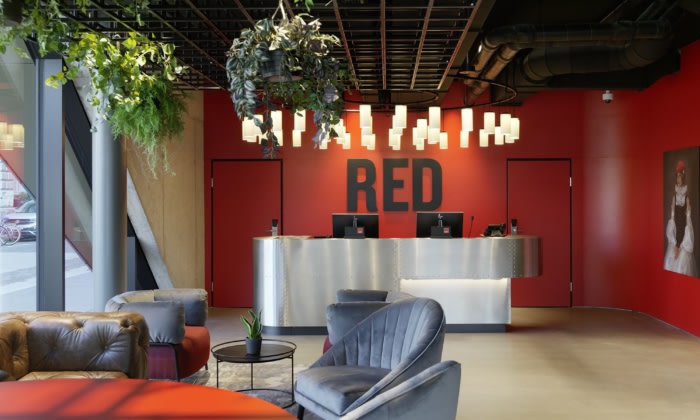
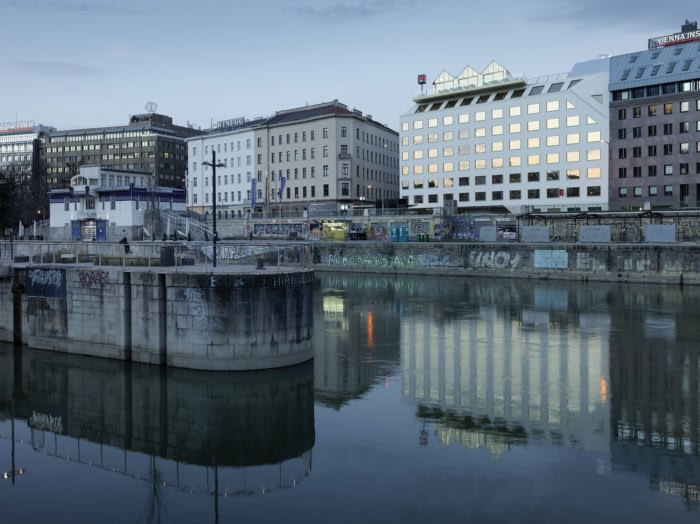
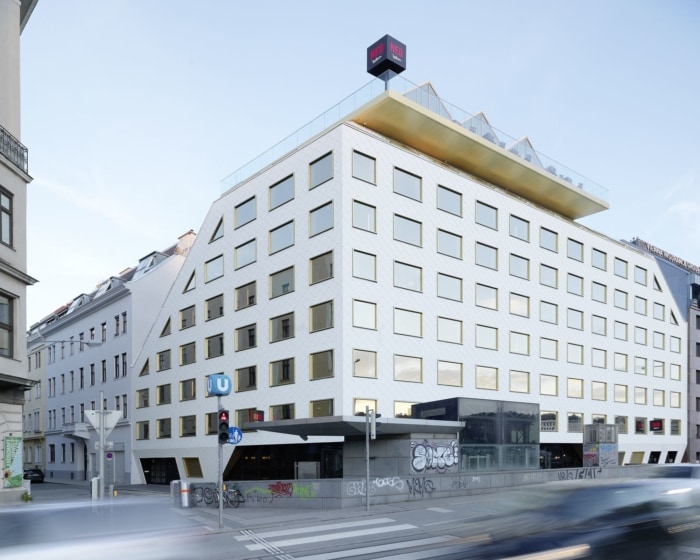
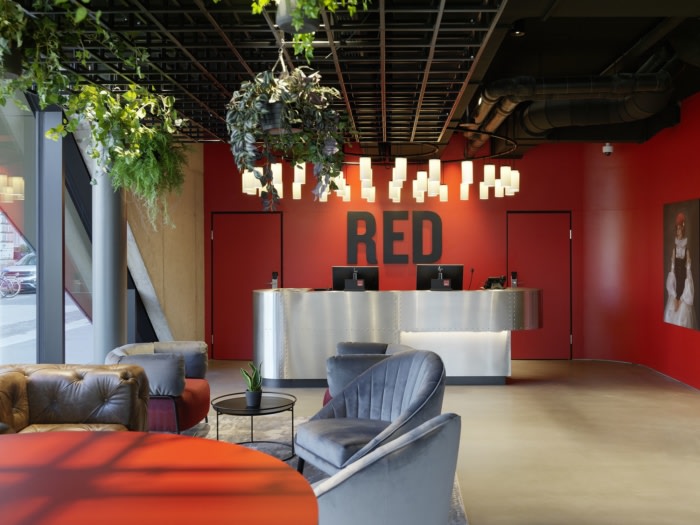
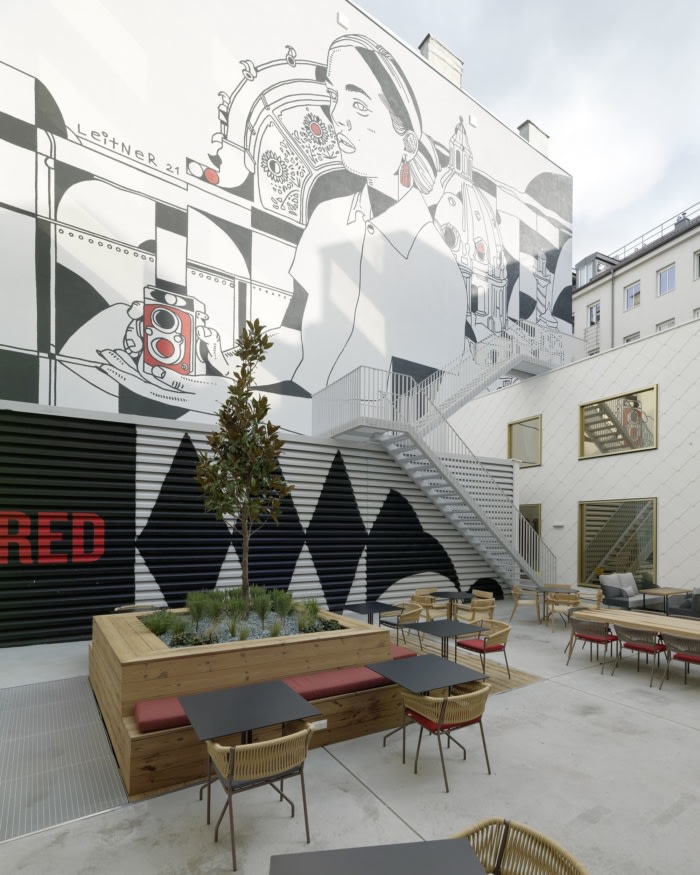
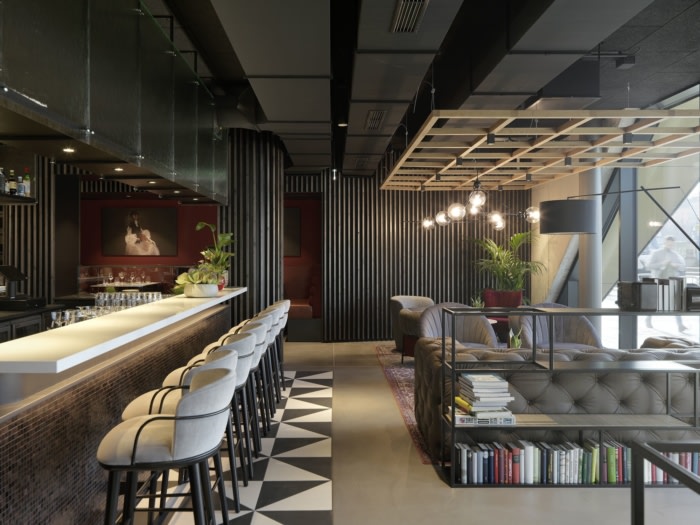
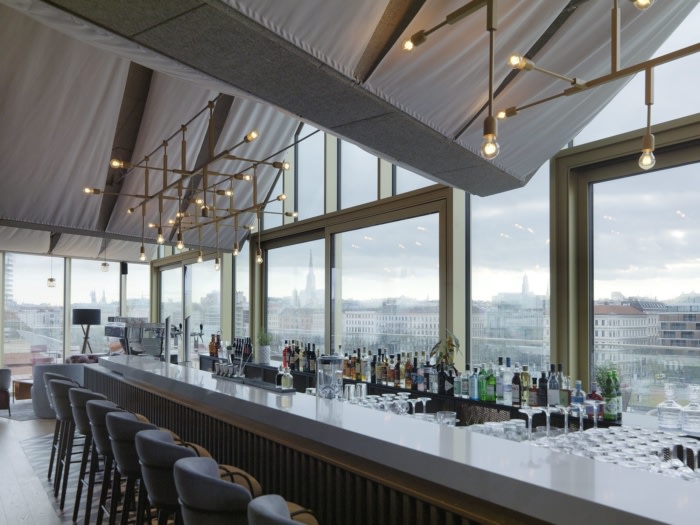
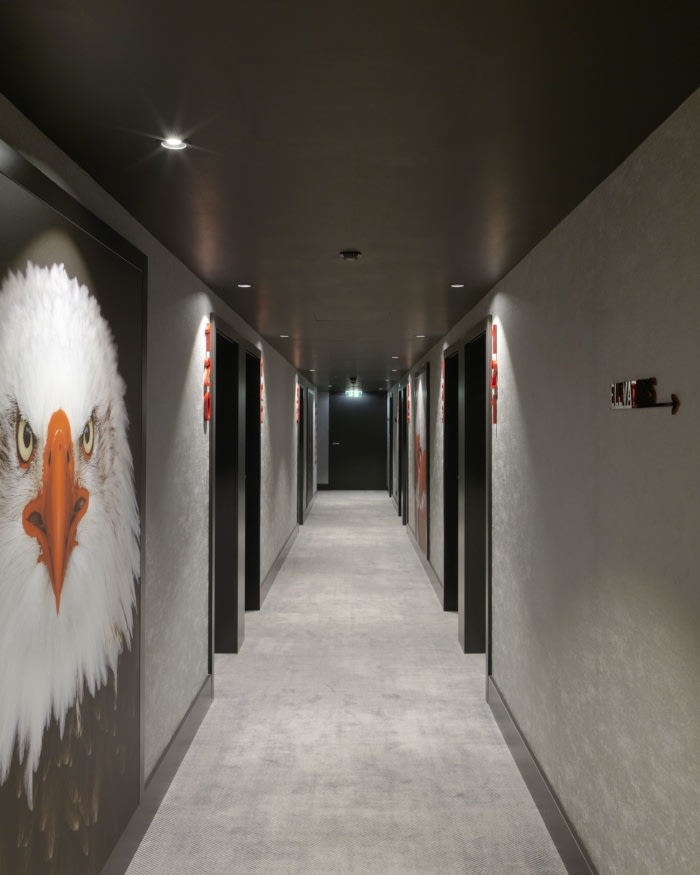
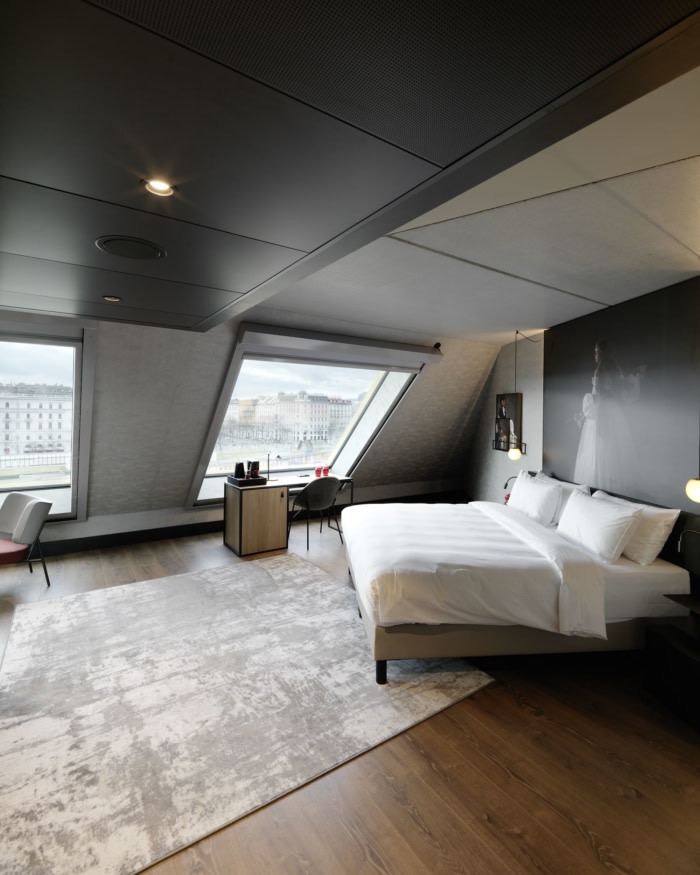
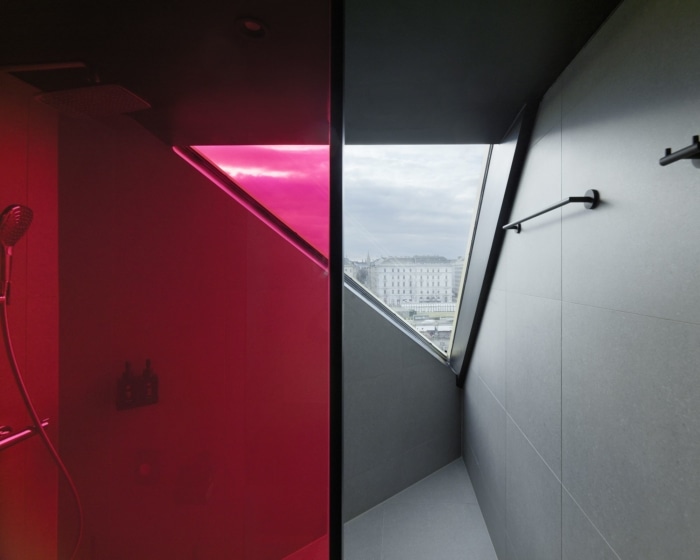



Now editing content for LinkedIn.